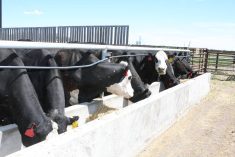When budding entrepreneurs fantasize about their glorious futures, their daydreams are a lot like the life Arnie Unger was living in 1993.
Starting in their home just eight years earlier, Arnie and his wife Renée – a creative genius when it comes to salad dressings – had gone from nothing to a company with sales of more than $9 million a year. And with business growing by 20 percent a year, the sky was the limit for Renée’s Gourmet Foods.
Then, Arnie Unger said, he took his eye off the ball and allowed the company to make the mistake, albeit a classic one for successful startups, of letting expansion costs get out of hand.
Read Also

Agriculture productivity can be increased with little or no cost
There’s a way to enhance agricultural productivity with little or no cost. It doesn’t even require a bunch of legislative changes.
The lesson here is that it’s not your mistakes that kill you; it’s what happens after you mess up. And Unger said it’s pretty straightforward.
“Afterwards, you’ve got to swallow your pride,” he said. “When you’re in trouble and your goal is survival, you’ve got to admit your faults.”
We’re not talking about a whispered confession to a friend. We’re talking about calling your creditors and suppliers and telling them exactly what’s up.
Unger’s story is useful because the numbers are so big and yet his situation was the same as any farmer unable to pay the feed or fertilizer bill.
To Unger’s credit, he doesn’t gloss over the mistakes that were made while opening a new plant in 1993. He doesn’t blame the contractor who messed up big time – one mistake cost the company a month’s worth of production – or the staff who missed the early warning signs. The bottom line was a cost overrun of $1.5 million: money the Ungers didn’t have.
“We were technically bankrupt,” Unger said. “Our debt-to-equity ratio was 11-to-1, believe it or not.”
But the business was still profitable and cash-flow positive. Sales were increasing and the bank had lots of collateral, including $1 million worth of accounts receivable and the deed to the Ungers’ home.
“So we went to the bank to see if we could get extra money and the bank panicked,” Unger said. “Instead of extending our line of credit, they took away our line of credit.”
This was the moment of truth, but Unger didn’t flinch. He bluntly told his suppliers he couldn’t pay what he owed them and wouldn’t be able to for a long time. Then he asked them to give him a chance to work things out.
“They trusted us because we were always true to our word and we had a good history with them,” Unger said. “People like honesty. It all comes back to trust.”
No, that can’t be right, can it? It all comes back to money, doesn’t it? Surely, opening your mouth is just inviting creditors to seize what assets they can before someone else does?
“It usually doesn’t work that way,” said Bev Connell, a consultant from Falmouth, N.S., with extensive experience in farm debt meditation.
“When you work with creditors, they’re usually very willing to do whatever they can to help a business restructure and continue on.”
Connell said he’s attended creditor meetings where key suppliers were offered a large chunk of what they were owed while non-core suppliers were offered three or four cents on the dollar and a promise of maybe more in six months. Even then, it’s not unusual for creditors to not only agree to the plan, but also suspend interest payments in the interim.
“If the creditors get offered something, even if it’s a small amount, and the farmer actually goes through and makes that payment, then that goes a long way in building a relationship,” Connell said.
You have to be upfront and show that you are seriously working to resolve the situation, he added. Honesty must also be paired with commitment and patience.
“People are often surprised at how long the process takes, Connell said. “Sometimes it takes a year or even two years. It’s not a quick fix because the problems that caused it are long term. You want to correct those problems so you’re not back in the same situation in a year’s time.”
It was a year and a half before Unger was able to start paying off old debts. His creditors, too, had waived all interest and penalties. Today, the debts are paid and the company is approaching $50 million in annual sales.
Unger and Connell are emphatic that the key to solving a financial crisis is to start early.
“The problem with some people is that they are unwilling to admit to themselves that they have a problem and when they eventually do, it is too late,” Unger said.
“If you have a problem and cannot solve it yourself early enough in the process, then seek help before it’s unsolvable.”
Renée’s Gourmet Foods can be found at www.renees.com while
Bev Connell can be reached at proagri@eastlink.ca.
Glenn Cheater is editor of Canadian Farm Manager, the newsletter of the
Canadian Farm Business Management Council. The newsletter as well as archived columns from this series can be found in the news desk section at www.farmcentre.com. The views stated here are for information only and are not necessarily those of The Western Producer.














